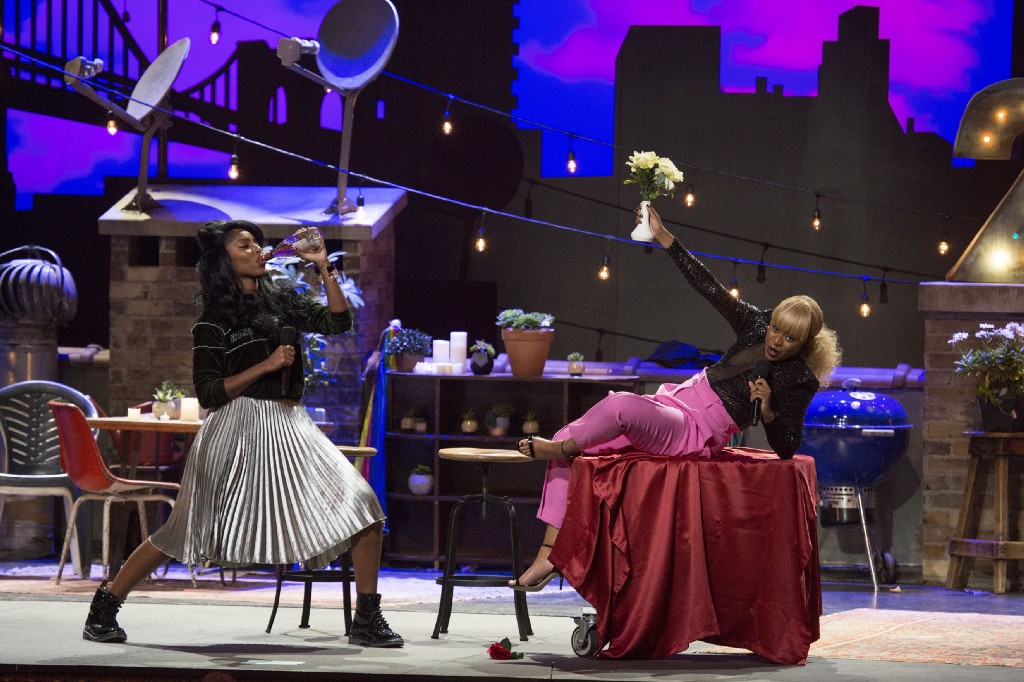interviews
How Kareem Abdul-Jabbar Is Reinventing the Sherlock Holmes Story
The co-author of ‘Mycroft and Sherlock’ isn’t interested in Holmesian pastiche that doesn’t include people of color

Kareem Abdul-Jabbar spent decades proving his prowess on the basketball court. Season after season he skyhooked his way to becoming the National Basketball League’s all-time leading scorer. After his retirement, he has become a fixture in the media as well as bookstores. He teamed with seasoned screenwriter Anna Waterhouse in 2017 for Mycroft Holmes, a book about the older, and smarter, brother to Sherlock Holmes.

Mycroft Holmes presented Mycroft in a light that Sir Arthur Conan Doyle’s work never did. Abdul-Jabbar and Waterhouse rounded out the character and made him a complex main character in a thrilling detective tale. Now, the duo returns with a sequel to the work that brings the brothers together to solve a crime. Mycroft and Sherlock adds yet another wrinkle to the Holmes-canon that is equally refreshing and a return to classic Holmesian mystique and intrigue.
I corresponded with the NBA Hall-of-Famer and the seasoned screenwriter via email about their detective sequel, tackling such a famous canon, and tried to get them to predict the 2018–19 NBA champion.

Adam Vitcavage: The first novel focused on solely on Mycroft Holmes. Why introduce Sherlock as such a pivotal character?
Kareem Abdul-Jabbar: We were extremely curious about their relationship because in the Sir Arthur Conan Doyle books, they are polite and Sherlock is certainly admiring of his older brother’s genius, but neither is in the other’s social circle(s) and if they spend leisure time together, we are not informed. We began to wonder how two people who should have so much in common are instead little more than polite strangers. Since we begin Mycroft’s “life” at 23 (in Mycroft Holmes), we have some leeway as to who their parents are and what the dynamics are. Then we stipulate, from what ACD tells us about Mycroft, how he and Sherlock would naturally gravitate to different interests. Finally, we put them together…and watch them combust!
Talking to NBA Legend Kareem Abdul-Jabbar About His Sherlock Holmes Novel
AV: Was there ever a time your second book would just follow Mycroft without Sherlock?
KAJ: Was there ever a time that we didn’t think of including Sherlock? No. He’s too big a fictional character to marginalize him. And frankly, he has too many fans. We also were anxious to show their myriad differences, and it was easier to do so when they were side by side.
AV: Sibling dynamics are my favorite relationships in literature. What was the most important aspect of exploring Mycroft and Sherlock’s brotherhood?
KAJ: Their family. Their father, and in particular, their mother. We allowed ourselves free rein, since the only thing ACD tells us is that they were “country squires” — not exactly a limiting option. How would two boys (moving into manhood) go about protecting a fragile parent? What sorts of obstacles would they face? How might it intensify a natural sibling rivalry?
AV: I was very intrigued by Cyrus. He is such a unique point of view for the time period. How did he develop for the first novel and continue to evolve for this one?
KAB: To be frank, we weren’t interested in writing the typical Holmesian pastiche (or any sort of pastiche) that did not include people of color. There were many living in Victorian England but you’d hardly know it from the writing of the time. Mycroft’s passion and search for fine cigars (especially in Mycroft Holmes) would lead naturally to his meeting people from varying backgrounds. And, because of my family origins in Trinidad, we knew this particular person “of varying background” could hail from there.
We also knew we didn’t simply want someone whose primary function was to say, “And why is that, Holmes?” Which meant that we had to formulate a real personality, real opinions (sometimes contrary to Mycroft’s), and real and believable affection between the two. Lucky for us, some characters spring forth fully grown, like Athena from the head of Zeus (we wish!), and that’s what happened with Douglas. He is, to use another literary reference, Mycroft’s Jiminy Cricket.
Sherlock Vs. Sherlock: What Two New Sherlock Holmes Pastiches Tell Us About the State of Fan Fiction
AV: Whodunnits can seem to be formulaic, yet this novel seems so fresh. What other mysteries and detectives outside of Holmes have inspired you both?
KAJ: Both Anna and I are inordinately fond of Joe Ide’s detective Isaiah Quintabe. It’s brilliant writing. We also like Laurie R. King’s series on Mary Russell and Anthony Horowitz’s The House of Silk.
AV: Writing is often a solitude task. How do you to manage to collaborate in such an effective way?
KAJ: By remaining in solitude! Seriously, it’s a great way of working. I like plotting. I have a certain knowledge and love of history. Anna is great with dialogue and is a researcher by nature. We both like social commentary (when appropriate), and we have the same vision about the big picture: how a story set in Victorian England can show us where certain problems and issues were first birthed. After the initial pass where we construct the story, we will pass a chapter back and forth until we’re passably happy with it — and then move on, though we’ll often go back and add or change as necessary (because plots aren’t static…they have a sneaky way of changing on you).
Our vision was to show a story set in Victorian England where certain problems and issues were first birthed.
AV: What have you two learned about each other through writing these two books together?
KAJ: I think there’s a separation between the personal and the professional. I don’t think we “learned” anything in particular about each other’s personalities. I couldn’t tell you the first thing about her interactions with her family and friends, for instance, and she would have no idea about mine. But in every subsequent book, it’s easier to trust each other’s abilities. We’re both opinionated, but we’re also both team players: we don’t fight for an idea just because it’s “ours.” We’re looking out for the book.
AV: What’s the future look like for Mycroft Holmes books?
KAJ: We’re finishing up a third one. We’ll be handing it in, in the next few weeks. If all goes well, it’ll be out next year. With every book, we have an eye out for ACD’s description of Mycroft Holmes in his 40s (obese, sedentary, co-founder of The Diogenes Club) and are very aware that it’s the bullseye we will eventually have to hit.
AV: Anna, you have worked a long time as a screenwriter. Any upcoming projects we can look forward to?
AW: Thanks for asking. I finished a feature film based on the kidnapping of General James Dozier by the Italian Red Brigades — an absolutely wild story that I first read about in Time Magazine. Phoenix Pictures and the wonderful Mike Medavoy are producing the film. I’m also working with Robert Towne on a limited series based on a book by James Crumley called Dancing Bear.
AV: Kareem, you have joined the Veronica Mars writing room after a long history with Hollywood (your cameo in Troop Beverly Hills remains a favorite). What has it been like in writing for television?
KAJ: A very different beast. I’m used to either writing alone or with a single co-author. But television writing involves brainstorming and writing with five other writers, all of them brilliant, witty, funny, and very fast on their feet. It’s like running a fast break without ever being able to slow down. I find it very exhilarating but also very challenging.
AV: Finally, Mycroft and Sherlock are the masters of deduction. Who would they deduce has the best chance to dethrone the Warriors as NBA Champions?
KAJ: They would be stumped until they could observe the two teams and get a sense of what their strengths and weaknesses would be. I don’t think they would be rabid fans, since their attention would focus mainly on crime and other circumstances that cause crime.









